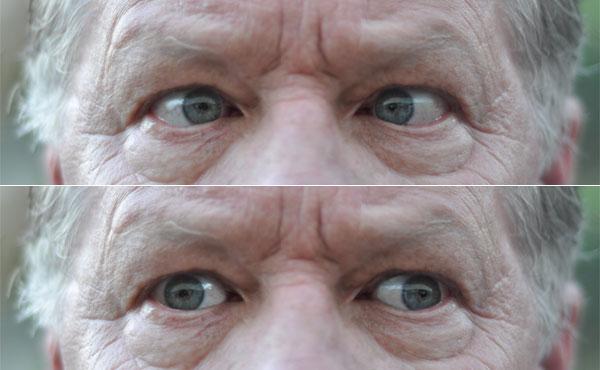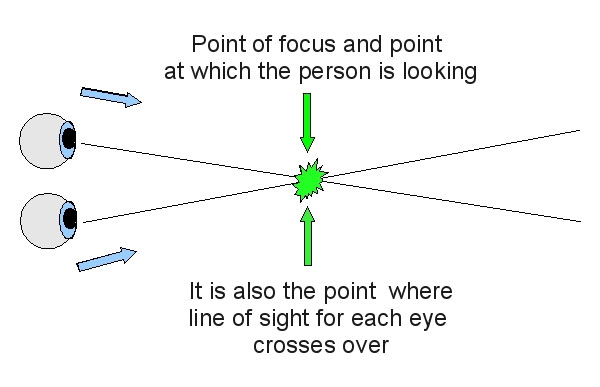3D Sickness Explained?

Audiophiliac Steve Guttenberg recently sent me a link to Roger Ebert's blog for the Chicago Sun-Times that could provide the answer. Ebert is a well-known 3D naysayer whose opinions on the subject I discussed here. In his latest post, Ebert reprints a letter he received from film editor and sound designer Walter Murch, who is credited with co-developing 5.1 surround sound and has received numerous Academy Award nominations, winning the Oscar in 1979 for his sound work on Apocalypse Now.

In his letter to Ebert, Murch points out that, when looking at an object in the real world, our eyes focus and converge at the same distance, depending on how far away the object is, as depicted in the diagram above. When watching stereoscopic 3D images, however, the eyes remain focused on the screen plane, which is at a fixed distance, while their convergencetheir "toe-in" angle, if you willchanges in response to seeing objects at different "distances" in the stereoscopic image. In other words, our eyes are called upon to focus at one distance and converge at another, something that our long evolutionary history has not prepared us for. The result is 3D sickness in a large portion of the population.
Murch also cites other problems with stereoscopic 3Da dimmer picture (true), more "strobing" or stuttering of horizontally moving objects (true), and a tendency for 3D images to look smaller than their 2D counterparts, an effect I haven't noticed. As he acknowledges, these problems can potentially be solved, but not the convergence/focus disparity, and I must agree.
He ends his letter thus: "So: dark, small, stroby, headache inducing, alienating. And expensive. The question is: how long will it take people to realize and get fed up?" This has yet to become clearas with most statistical analyses, one can present the numbers to show that 3D is in decline or on the rise. One thing's for surethe studios and TV manufacturers aren't going to give up on 3D any time soon, so we will be faced with this issue for the foreseeable future. But hey, the answer is actually quite simpleif watching 3D makes you sick, don't watch it.











































